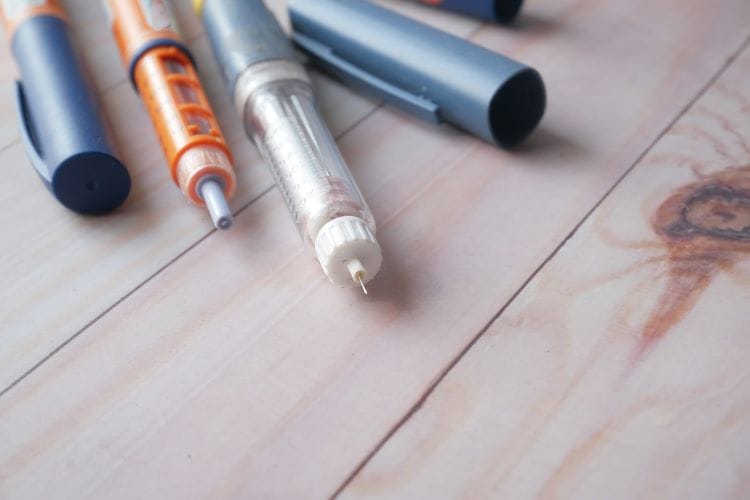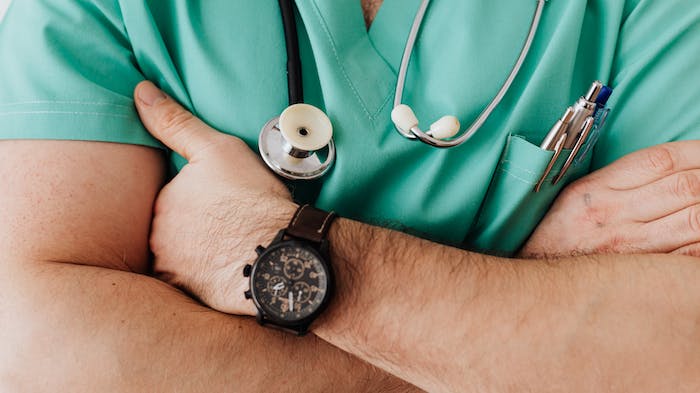Fentanyl is an analgesic (pain relief) and anaesthetic drug commonly used for the management of chronic pain and surgical procedures.
In the past few years, Fentanyl has increasingly been used recreationally, as an illegal high.
Fentanyl is being made illicitly, and cut into other drugs like cocaine, heroin and methamphetamine at an alarming rate, making these street drugs more and more dangerous.[1]

Fentanyl is a narcotic analgesic that’s at least 80 times stronger than morphine.[2]
An animal tranquillizer called xylazine mixed with Fentanyl is increasingly being found in street drugs in the US, and this combination is particularly dangerous.[3]
Illicit forms of Fentanyl include a pale yellow powder known as ‘White Persian’ and ‘paper trips’, which are thin pieces of cardboard blotted with Fentanyl.[4]
In 2017 alone, there were 79 Fentanyl-related deaths in England.[5]
Rehab 4 Addiction provides advice free of charge, and also referrals to top rehabs across the UK.
For more information about Fentanyl addiction, call our 24/7, confidential hotline on 0800 140 4690.

Fentanyl is an opioid, which means it’s made from the opium poppy plant. It’s synthetic – which means it’s manmade – usually in a lab.[6]
Also known as narcotics, opioids are medicines that treat severe pain, like surgical procedures backaches, headaches, and injuries.
Fentanyl abuse has shot up within the past few years – with the number of pills containing the substance seized in the US more than doubling between 2020 and 2021.[7]
As well as its addictive nature, Fentanyl can make users feel euphoric and relaxed.[8]

Recreationally, Fentanyl is consumed by being:
Rehab 4 Addiction provides advice free of charge, and also referrals to top rehabs across the UK.
For more information about Fentanyl addiction, call our 24/7, confidential hotline on 0800 140 4690.
Fentanyl works by binding to opioid receptors within the brain [10]. If you use Fentanyl repeatedly, your brain can become accustomed to it, and stop producing these chemicals on its own.
This could leave you unable to feel the same pleasure from normal events and activities.

Even in small doses, Fentanyl can be deadly.
If you’re taking a prescription from a doctor, this will be carefully calculated to ensure your dosage is a suitable level.
However, with illegally made Fentanyl and in situations where you’re choosing the dosage, it’s very easy to accidentally take too much.
The Centers for Disease Control and Prevention report that more than 150 people die every day from overdoses linked to synthetic opioids like Fentanyl.[11]
Rehab 4 Addiction provides advice free of charge, and also referrals to top rehabs across the UK.
For more information about Fentanyl addiction, call our 24/7, confidential hotline on 0800 140 4690.

Fentanyl overdose can be lethal, so it’s important to act quickly if a person is showing signs of:
Naloxone is an emergency medication that can be injected. This can ease the dangerous symptoms of Fentanyl, and save the life of a person who has taken a deadly dose.

Whether you’re taking Fentanyl that’s been prescribed by a doctor, or you’re using it as an illegal high, it is possible to become dependent on the substance.
Even when a doctor has prescribed Fentanyl for aches or pains, you could still develop a dependence.
It’s important to only take the dosage your doctor has given you, when it is due. Be honest about your symptoms and only take what you need.
If you’re concerned about Fentanyl dependence, speak to your GP.
Taking Fentanyl as an illegal high carries more of a risk of addiction, because the dosage has not been calculated by a doctor.
Some people are also unaware they’re taking Fentanyl, if it has been cut into another drug like cocaine or heroin.

The Diagnostic and Statistical Manual of Mental Disorders from the American Psychiatric Association is a test designed to diagnose Fentanyl use disorder and other addictions.
You could have a Fentanyl addiction if you:

Some people may be more likely to fall into addiction.
People who are exposed to drugs and alcohol early in life are statistically more likely to experience addiction in adulthood.[13]
Research has found that an allele called A1 of the dopamine receptor is more common in people suffering with addiction.[14]
Having this gene could mean you’re predisposed to addiction.
Rehab 4 Addiction provides advice free of charge, and also referrals to top rehabs across the UK.
For more information about Fentanyl addiction, call our 24/7, confidential hotline on 0800 140 4690.

Experiencing many adverse events in your childhood (ACEs), can make you 7-10 times more likely to have addictions.[15]
Adverse Childhood Events include:
There is a strong link between mental health disorders and addiction.[17]
People often enter addiction as a solution to a way that they’re feeling, and at the root of that is pain.
This is called self-medicating.

Stopping Fentanyl after taking it consistently can lead to:
Rehab 4 Addiction provides advice free of charge, and also referrals to top rehabs across the UK.
For more information about Fentanyl addiction, call our 24/7, confidential hotline on 0800 140 4690.

Addiction can slowly consume every aspect of your life, as you become more preoccupied with using Fentanyl and less concerned about your loved ones and hobbies.
Opioid use disorders can harm families and personal relationships.
This can be down to:

Abuse of opioids affects the endocrine system.
This can cause:
People abusing opioids also have a higher risk of falls and injuries.
Rehab 4 Addiction provides advice free of charge, and also referrals to top rehabs across the UK.
For more information about Fentanyl addiction, call our 24/7, confidential hotline on 0800 140 4690.

Your job and career opportunities could be harmed by:

A combination of medication, therapy and aftercare will equip you with the best support and coping strategies for a healthy recovery.
Fentanyl detox is when you stop taking the drug and allow your body to readjust.
If you are physically dependent on Fentanyl, you may be given medication to ease your withdrawal symptoms.
Rehab 4 Addiction provides advice free of charge, and also referrals to top rehabs across the UK.
For more information about Fentanyl addiction, call our 24/7, confidential hotline on 0800 140 4690.

Talking therapies, group therapy and behavioural therapies can all boost your chances of recovery by allowing you to process your emotions better.
If you have a Fentanyl prescription, take only what you’ve been prescribed and do not up your dosage without medical advice.
Your doctor will reduce the chances of addiction by only prescribing what’s necessary.
If you’re using Fentanyl recreationally to get high, make sure you understand the risks. Talk To Frank offers information about drugs along with the dangers and risks associated.
Fentanyl strips are a way to test other drugs to see if they contain Fentanyl. This can stop you from unknowingly taking Fentanyl.

Yes, book an appointment with your GP, and check out The NHS’s page on drug addiction to find more information and resources.
There are lots of non-profit organisations that can help you with Fentanyl addiction.
You can get completely free treatment and support from:

Private rehab can offer an extra level of support.
Inpatient rehab (where you live at the facility) will give you around-the-clock security and care throughout your stay.
Outpatient rehab can allow you the flexibility to work or look after your children, by offering regular catch-ups and sessions at a treatment facility near you.
Rehab 4 Addiction provides advice free of charge, and also referrals to top rehabs across the UK.
For more information about Fentanyl addiction, call our 24/7, confidential hotline on 0800 140 4690.
[1] https://www.cdc.gov/stopoverdose/fentanyl/index.html
[2] https://www.emcdda.europa.eu/publications/drug-profiles/fentanyl_en
[3] https://web.archive.org/web/20230331134353/https:/www.cdc.gov/stopoverdose/fentanyl/index.html
[4] https://www.emcdda.europa.eu/publications/drug-profiles/fentanyl_en
[5] https://www.ncbi.nlm.nih.gov/pmc/articles/PMC10278447/
[6] https://www.dea.gov/factsheets/fentanyl
[7] https://nida.nih.gov/research-topics/fentanyl/fentanyl-infographic
[9] https://www.dea.gov/factsheets/fentanyl
[10] https://www.ncbi.nlm.nih.gov/pmc/articles/PMC9107910/
[11] https://www.cdc.gov/nchs/nvss/vsrr/drug-overdose-data.htm
[12] https://drugfree.org/article/substance-use-disorder-vs-addiction/
[13] https://www.ncbi.nlm.nih.gov/pmc/articles/PMC3664402/
[18] https://nida.nih.gov/publications/drugfacts/fentanyl#:~:text=Yes.,when%20the%20drug%20is%20stopped.